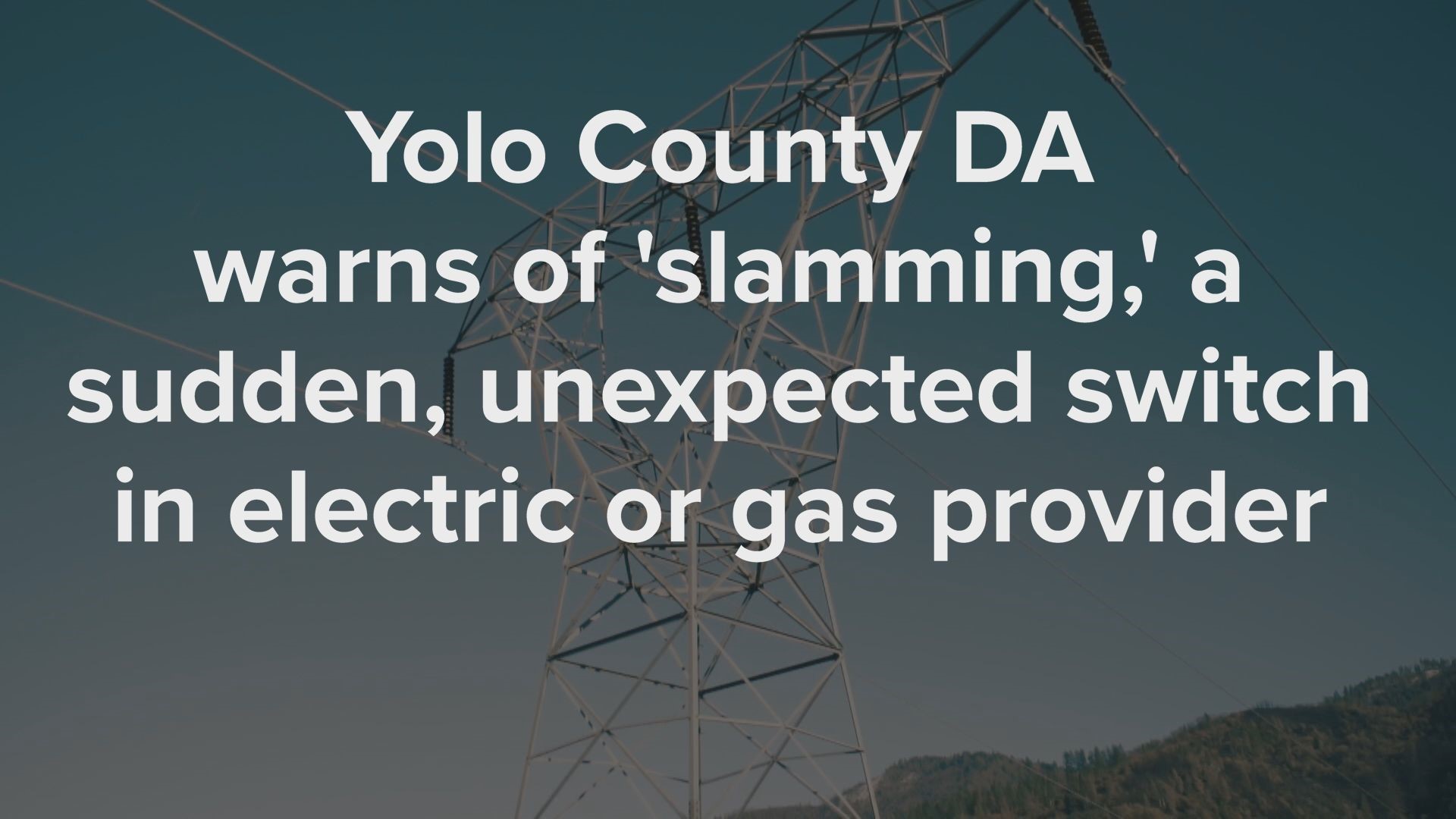WEST SACRAMENTO, Calif. — The McKesson Corporation’s West Sacramento location is in hot water with the federal government.
On Thursday, the US Drug Enforcement Administration filed an application for an administrative inspection warrant with the US District Court for the Eastern District of California, per the Controlled Substances Act. In it, the DEA claims McKesson’s West Sac distribution center is taking suspicious orders of opioids, specifically the addictive painkillers oxycodone and hydrocodone.
The DEA claims McKesson, a drug distributor, is failing to report these suspicious orders and failing to keep accurate records. The company is required by federal law to keep complete and accurate records of all the controlled substances it receives, sells, delivers and disposes of.
In response, McKesson tells ABC10 the company refutes the claim and that it's working with the DEA to resolve perceived discrepancies.
“We are working cooperatively with the DEA to better understand their record-keeping concerns and believe that any perceived discrepancies will be resolved,” McKesson director of corporate relations Kristin Chasen told ABC10. “McKesson is committed to maintaining – and continuously enhancing – strong programs designed to detect and prevent opioid diversion within the pharmaceutical supply chain.”
The company says it has also invested significant time and money into its Controlled Substance Monitoring Program.
McKesson's Past Problems
This, however, is just the latest development in McKesson’s scrutiny from the DEA.
In July of 2013, the DEA inspected McKesson’s West Sacramento distribution facility and found the company had failed to report suspicious orders of controlled substances.
As a result, McKesson settled in 2017 with the federal government, paying $150 million and entering into a 5-year agreement through Jan. 2022.
What flagged this current scrutiny?
In June of this year, the DEA checked into the McKesson West Sac location’s distribution patterns and found the company “was the number one distributor (for pharmacies) for the past two years for the highly addictive and highly abused controlled substances oxycodone and hydrocodone.”
In 2017, McKesson’s West Sac center distributed nearly 15.6 million doses of oxycodone and nearly 49 million doses of hydrocodone throughout California.
In 2018, the center distributed nearly 14 million doses of oxycodone and nearly 45 million doses of hydrocodone throughout the state.
So far in 2019, McKesson remains the top distributor, with more than 6.1 million doses of oxycodone and nearly 20.3 million doses of hydrocodone, the DEA reports.
The database search revealed that, within that time frame, McKesson reported more sales of Schedule II and III controlled substances than what purchasers reported buying from the company, by an amount of 1,285,785 doses and 8,902 grams (nearly 20 pounds), “indicating inventory and recordkeeping discrepancies,” the DEA’s court document says.
McKesson also reported buying more of those same kinds of controlled substances than wholesalers reported selling to them, by 116 million doses and 122,894 grams (nearly 271 pounds).
Additionally, the DEA court document says, McKesson has failed to report suspicious orders of Schedule II controlled substances.
“Given these facts,” the DEA investigator Christina Grijalva writes, “I believe there are likely to be suspicious orders for controlled substances and record-keeping violations related to the distribution and/or dispensation of controlled substances by McKesson.”
The DEA says it believes an administrative inspection will “help protect the public health and safety.”
“In light of significant discrepancies from the DEA database between McKesson Drug Company’s purchase and sale of Schedule II through V controlled substances, as well as its record distribution of such drugs, this inspection is to ensure that McKesson is in compliance with the current Memorandum of Agreement effective January 17, 2017,” the DEA’s warrant application says.
Disputing those discrepancies, McKesson said in its response that the company reports controlled substances transactions to the DEA on a regular basis.
“In accordance with our agreement with the DEA, since 2016, all McKesson distribution centers—including our Sacramento location—submit suspicious order reports to DEA headquarters. Sacramento has submitted hundreds of reports to DEA since that time,” McKesson said in response.
What is a 'suspicious order'?
The Healthcare Distribution Alliance, a national interest group representing pharmaceutical distributors like McKesson, says the term 'suspicious order' isn't understood by the general public and gets thrown around in news stories without context or questioning "whether or not such reports impact the [illegal] diversion of opioid-based medications."
The "DEA has only provided vague guidance on what constitutes a suspicious order," the HDA says on its website. "In the absence of clear industry-wide guidance, then, distributors have each crafted their own programs to detect and report suspicious orders."
Federal law defines a 'suspicious order' as one that is "of unusual size, orders deviating substantially from a normal pattern, and orders of unusual frequency.”
The HDA points out that federal law contains no definition for “unusual.”
"In an era where pharmacies place numerous orders every day, and may order from among thousands of different products, substantial variations in size, pattern and frequency are the norm," the HDA says.
America's Opioid Addiction Epidemic
In recent years, the US Centers for Disease Control and Prevention have declared America’s addiction to opioids an epidemic.
“From 1999-2017, almost 400,000 people died from an overdose involving any opioid, including prescription and illicit opioids,” the CDC says.
The Controlled Substances Act allows the DEA to inspect manufacturers and distributors of controlled substances such opioid-containing pain-management medication. The DEA can check records, reports, facilities, equipment, drugs, containers, labeling, files, papers and processes in the course of an administrative inspection, which is what the DEA wants to execute at McKesson’s West Sacramento location.
A federal judge must issue that warrant for the inspection.
Continue the conversation with Becca on Facebook.

